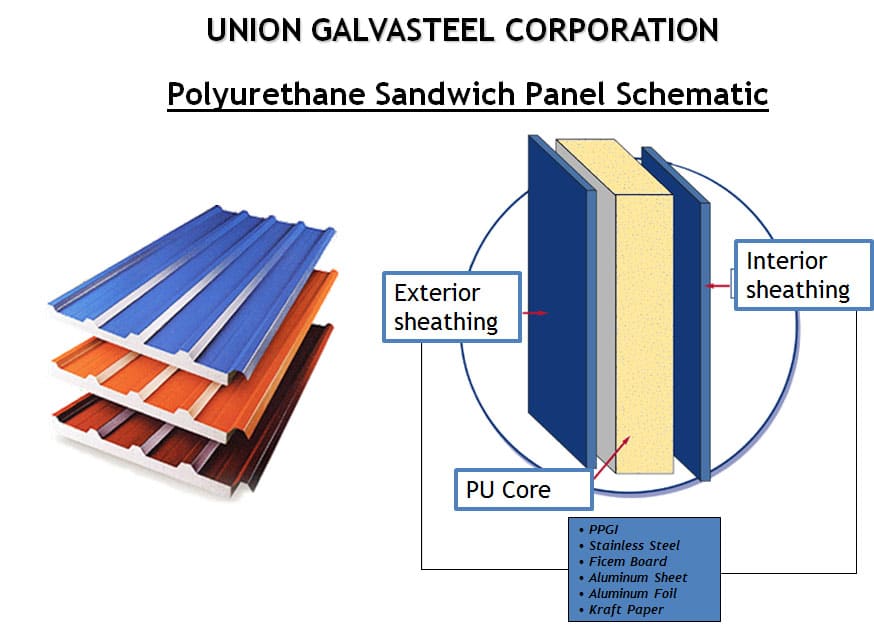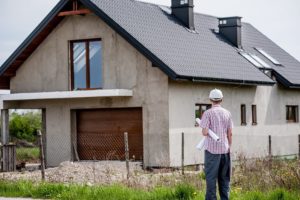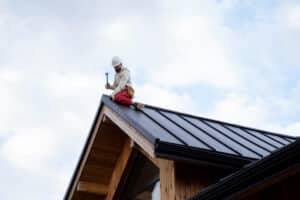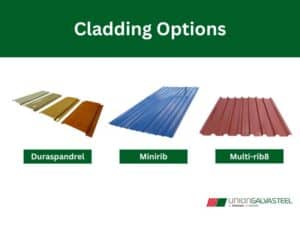The roof is the most essential feature of any house. It primarily protects you from adverse weather conditions. Insulation panels, when integrated into the roofing system, would help regulate indoor temperatures. It also plays a role in preserving the structural integrity of the roof.
Commercial and residential contractors and homeowners should consider the structure’s thermal needs and the insulation panel’s material and cost. When chosen wisely and adequately, the roof can withstand various weather and climate changes for an extended period. Poor choices, on the other hand, would lead to low roof performance.
Primary Types of Roof Insulation
There are several roof insulation panels available in the market. However, they differ mainly in terms of their properties, advantages, and disadvantages. The significant types of roof insulation include the following:
1. Wood fiber
Wood fiber is one of the most infamous roof insulation types. It is made from a combination of raw materials, such as wood, cane, or vegetable fibers, and fillers or binders. This material can either be asphalt-impregnated or -coated for better moisture resistance. A few of its advantages and disadvantages include:
Advantages:
- durable
- decent strength
- easy to cut and form
Disadvantages:
- unstable
- deterioration upon moisture contact
- poor fire resistance
2. Perlite
Some roof manufacturing companies combine the inorganic siliceous volcanic glass known as perlite with organic fibers and binders as an insulation panel. Like wood fibers, it is also asphalt-coated to limit unwanted adhesive absorption. A few of its advantages and disadvantages include:
Advantages:
- fire-resistant
- good strength
- stable
Disadvantages:
- friable
- poor tensile strength
- deterioration upon moisture contact
3. Polyurethane
Polyurethane is one of the most used roofing insulations in the market because of its high-quality performance and unique properties. It is derived from the reaction between a diisocyanate and polyol, giving rise to its extensive range of features. Among these is its ability to block undesirable air infiltrations while maintaining the strength and efficiency of the roof. A few of its advantages and disadvantages include:
Advantages:
● heat resistant
Disadvantages:
● may form condensates
4. Polyisocyanurate
With the use of a chlorine-free blowing agent, roof companies can produce polyisocyanurate. This insulation material features a closed-cell foam plastic core found between organic or inorganic facers. Its structure is responsible for maintaining its high thermal resistance despite the chances of air diffusion. A few of its advantages and disadvantages include:
Advantages:
● good strength
● lightweight
● stable
● fire-resistant
Disadvantages:
● may contribute to global warming
5. Polystyrene
There are two kinds of polystyrene insulation – expanded and extruded. Expanded polystyrene is impregnated with a foaming agent and develops when exposed to high temperatures. Meanwhile, extruded polystyrene is run through an extrusion process and grows due to atmospheric conditions. A few of its advantages and disadvantages include:
Advantages:
- stable
- lightweight
- inexpensive
Disadvantages:
- poor fire resistance
- low strength
- combustible toxic substances
6. Cellular glass
Cellular glass consists of a mixture of crushed glass and a foaming agent. The presence of heat causes the glass to melt and the foaming agent to decompose. When this happens, a uniform mixture of closed cells forms the material. A few of its advantages and disadvantages include:
Advantages:
- stable
- low water absorption
- good strength
Disadvantages:
- expensive
- friable
- low vapor conductivity
7. Gypsum board
Lastly, the gypsum board is a non-structural, non-combustible, and water-resistant insulation panel. Unlike wood fibers and perlite, this material is usually treated with a non-asphaltic coating for adhesion enhancement. It also acts as a thermal barrier over foam-plastic insulations. A few of its advantages and disadvantages include:
Advantages:
- high moisture resistance
- excellent wind uplift
- fire-resistant
Disadvantages:
- heavy
- expensive
- difficult to cut and form
Union Galvasteel Corporation’s Duratherm Insulation

Since there are several types of roof insulation in the market, choosing the most suitable one for your house can be a time-consuming and challenging task. Fortunately, the Union Galvasteel Corporation UNION INSULATED PANEL CORPORATION offers its very own insulated products, made mainly from polyurethane or polyisocyanurate for better fire extinguishing properties. Customers are ensured of the following features for every insulation panel they buy:
- aesthetically designed
- durable
- adapts to weather and climate changes
- excellent and compressive outer material
- versatile thermal conductivity and density
- flexible insulation and metal thickness
- transportable panel length
You can even get your Duratherm insulation in two varieties – the standard PU panel or the roofing PU panel. For more information, you can check out their product brochure.
Best Roofing Company in The Philippines
Every product UGC manufactures embodies the company’s slogan, “SA TIBAY AT GANDA, PANALO KA,” providing only the best and highest-class products and services to make the lives of the Filipino people better. Aside from their operational excellence, they are also known for having the best human resources, who are equipped with excellent skills and knowledge.
UGC also guarantees that they practice globally accepted protocols to ensure that their products are aesthetically designed. They also use state-of-the-art technology to ensure the versatility and durability of their products for various applications.
For over 60 years, Union Galvasteel Corporation has been a market leader in the manufacturing and distribution of pre-painted and other galvanized roofing in the Philippines. We have the industry’s largest and most diversified distribution network, with warehouses and sales offices in strategic locations throughout the country. For our roofing and panel insulation products, get in touch with us via our website and Facebook or call these numbers for assistance: (02) 8520-8822-23; 8520-8831; (049) 545-0084 to 86 or 09175033965 (Globe) and 09190032303 (Smart).




